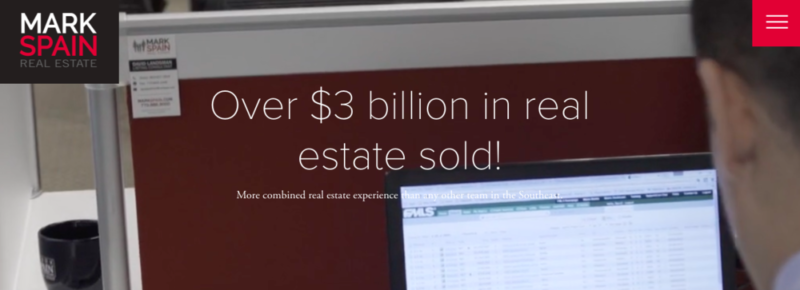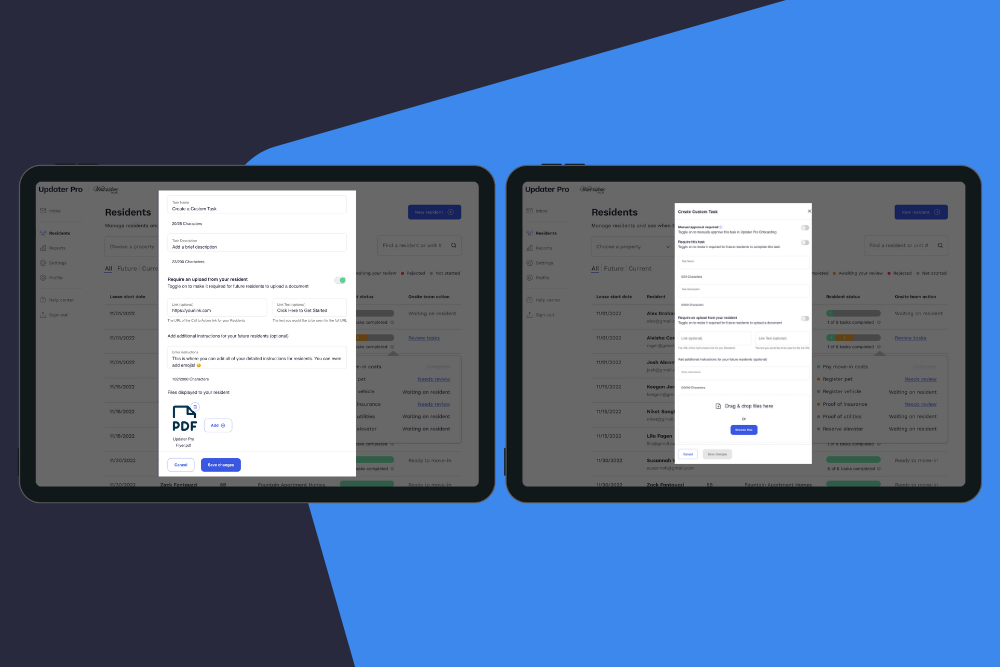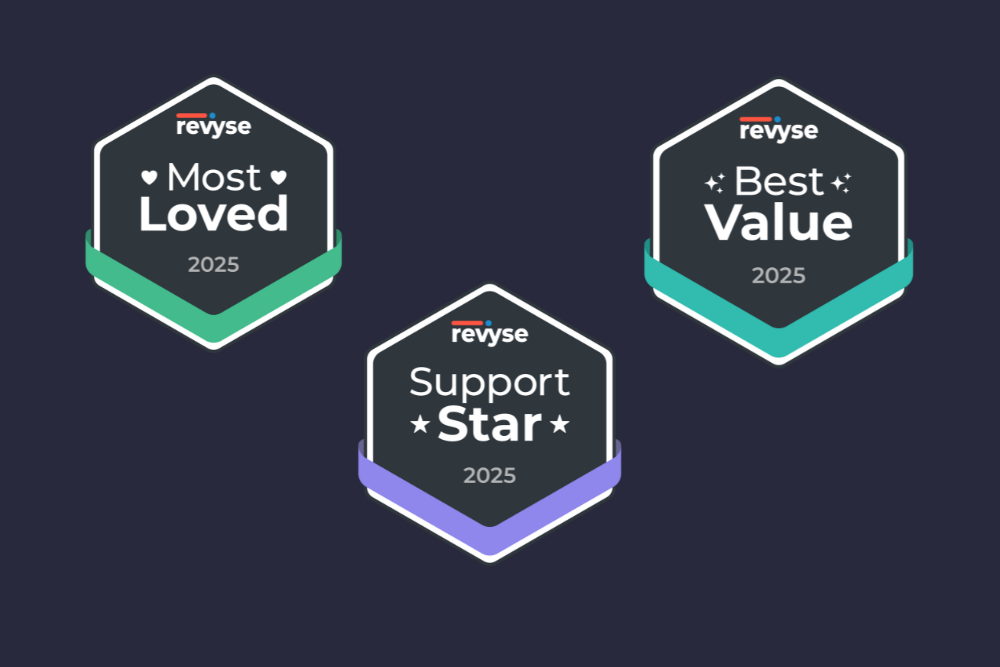5 Ways to Use Social Proof to Sell More Properties

As a brokerage or real estate agent, on any typical day, you might be showing a property in the morning, responding to emails that afternoon, and driving across town to throw an open house later that night. Real estate is a full-time job that never seems to stop while requiring a laser focus on time management.
When weighing your daily tasks, your website can often fall to the back of your long list of priorities.
You likely know the importance of a strong digital presence, but once your site and listing pages are up, it’s easy to say “that’s good enough.” But we encourage (and challenge) you to stop for a second and consider one strategy that can greatly increase the number of leads you receive and, ultimately, help you sell and list more properties.
It’s called social proof — and it’s quite simple:
Social proof is the psychological and social phenomenon that our behavior is influenced by the actions, attitudes, and beliefs of other people (online or in-person).
It might be better explained through a few examples:
-
It’s why we join a long line for a new food truck because the possibility of missing out is too much to take.
-
It’s why we buy those shoes that our friend shares on Instagram.
-
And it’s why we think an item is “better” on Amazon if it has more five-star reviews than the other options.
The concept of social proof is a powerful psychological driver, and it’s easy to implement into your digital marketing strategy for your real estate business. By integrating these five forms of social proof on your site and marketing channels, you’ll be well on your way to getting more listings, closing more sales, and landing more organic referrals.
5 Tactics to Quickly Add Social Proof to Your Marketing
1. Provide opportunities for your customers to leave feedback.
Reviews are an incredibly important marketing tactic. In fact, 88% of consumers say they trust online reviews as much as personal recommendations. If you’re not already providing avenues for your past clients to review your brokerage, this is a necessary first step to building social proof into your real estate marketing strategy.
There are two main areas where you can collect reviews: publicly and privately.
Google, and Facebook all provide third-party avenues for collecting reviews from clients. The reviews are public, and you can easily use them to show the authenticity of your real estate brand. For example, if a buyer or seller has an issue, you can respond publicly with an answer. Public reviews are also a window for a prospective buyer or seller to view how you treat others — and that can be an important deciding factor in their decision to do business with you.
The other method of reviewing is private, most likely through an NPS survey or some other feedback collection method. You can reach out to past buyers and sellers, then channel their qualitative responses into actionable insights for your business. Delighted, Typeform, and SurveyMonkey are all great tools to survey your audience and start collecting meaningful data from your clients.
Deciding between public and private reviews depends on your business. If you’ve had angry clients in the past it might be wise to avoid the public route for reviews, at least for a while. But, if you have a tarnish-free record, it’s worth it to tap into your network publicly.
2. Display customer reviews on your site.
Once you’ve collected feedback from your past clients, you’ll have plenty of quotes to use on your website and in other marketing materials.
In your Facebook ads and on your site, you could simply say “trust me.” Or you could say, “don’t just take my word for it, here’s what my past clients have to say.” The latter is a lot more powerful and demonstrates the value of your brokerage.
Look at how real estate brokerage Tindell and Co. positions customer reviews as one of the main focuses on their home page:
Including quotes in your marketing efforts has the added benefit of making your marketing more personable. If a potential client is on the fence about whether they should go with your brokerage or one of your competitors, a solid quote from a past client could be enough to tip them in your favor. For this reason, be selective when choosing which client quotes to include.
Remember that if you include a client’s testimonial or quote on your website, that client might be contacted in the future as a reference for your business. Before using their quotes, reach out to clients, get approval to include their quotes, and make sure they feel comfortable having their name attached to your brand. If they prefer to remain anonymous, that’s okay. However, having an actual name attached to a quote speaks volumes about the client experience your brokerage provides.
Another not-so-obvious but still valuable quality of reviews is that you save a lot of time by letting your clients do the talking for you. By using their testimonials, you have to write less copy for your ads, your web pages, and your listings — you simply sit back and let them do the selling for you.
3. Add trust badges to your pages.
A trust badge is a concept that digital marketers leverage heavily. Trust badges are a social proof strategy used when marketers co-opt the logo of a prestigious, well-known brand to elevate their own brand.
This is the thought process: If “you trust X institution,” and “X institution trusts me,” then “you should trust me.”
For example, many businesses include the badge of the Better Business Bureau (BBB). If a reputable organization such as the BBB trusts in the small business down the street, the chance that you’ll trust them as well increases.
Another way to use trust badges is to highlight awards your business has won. For example, Century 21 New Millenium includes the awards they’ve won on their website’s homepage.

And if you’re thinking to yourself, “I haven’t won any awards,” don’t worry. You can add trust badges to your website by including logos of current partners (such as Updater), past press coverage, or organizations you’re a part of (Better Business Bureau, National Association of Realtors, etc). We’re positive there’s at least one prominent name you can use as social proof.
4. Introduce social proof notifications.
On your website or real estate landing page, you have only a few seconds to make a visitor want to work with you before they bounce to another site. It’s your responsibility to make sure your page has a headline, images, and copy that’s captivating enough to make a visitor want to stay on the page and ultimately reach out to you.
Social proof notifications are a great way to make visitors engage and respond positively to your webpage. You’ve likely seen these notifications before when shopping for flights or booking a hotel. They provide live data from your website and display it to encourage users to take action.
For example, you might have seen language on a hotel website such as, “135 people are currently looking at this hotel,” or “33 people have reserved similar rooms in the past 24 hours.”
These types of notifications used to be out of reach for anyone without a dedicated engineering team, but now you’re able to get these notifications on your site through software such as Proof.
For instance, you could say “14 people inquired about this property today” or “1,344 people reached out to our brokerage in the past week.” The data is all real and can improve your conversion rate significantly.
5. Provide data to quantify your results.
Another method to implement social proof in your campaigns is to use your business data as your marketing copy. Clients are great advocates for your brand, but raw customer data (if positioned correctly) is even better.
Consider how Mark Spain Real Estate’s “About Us” page mentions that their brokerage has sold over $3 billion in real estate and possesses “more combined real estate experience than any other team in the Southeast.” Together, those stats create some pretty powerful marketing copy.

You can take a similar approach for your real estate business. Identify your key metrics and consider whether the number would be beneficial in a marketing campaign.
So, what are some good metrics to include?
-
Total value of properties sold
-
Total number of clients you’ve worked with
-
Average review rating
-
Average time to close and time to sell a property
There you have it: five ways that social proof can be used to help you sell more properties. Social proof isn’t a complicated concept but is extremely powerful and easier to implement than you might have thought. We hope these tips help you build up the number of leads coming into your brokerage, and ultimately help you list and sell more properties.
More Industry Insights

Five leadership lessons multifamily can steal from sales (courtesy of Kevin Ducey’s conversation with Tony Sousa)
15 December 2025

What great sales leadership can teach multifamily about resident satisfaction
15 December 2025












